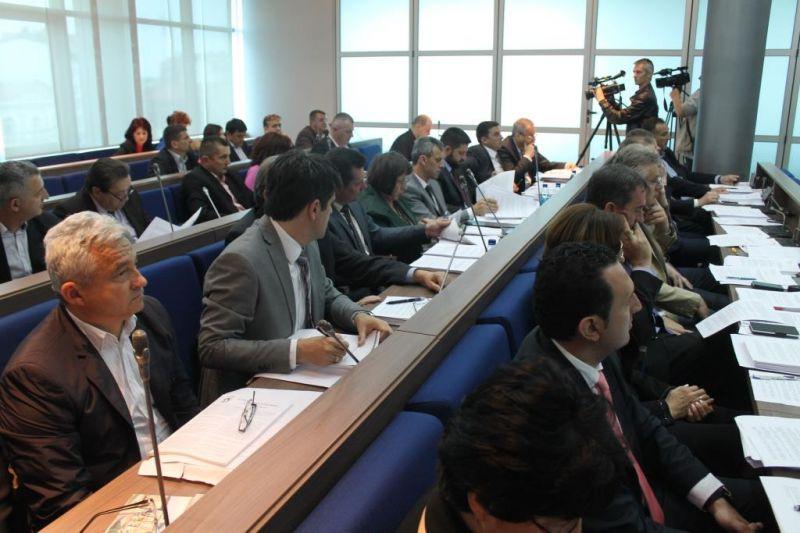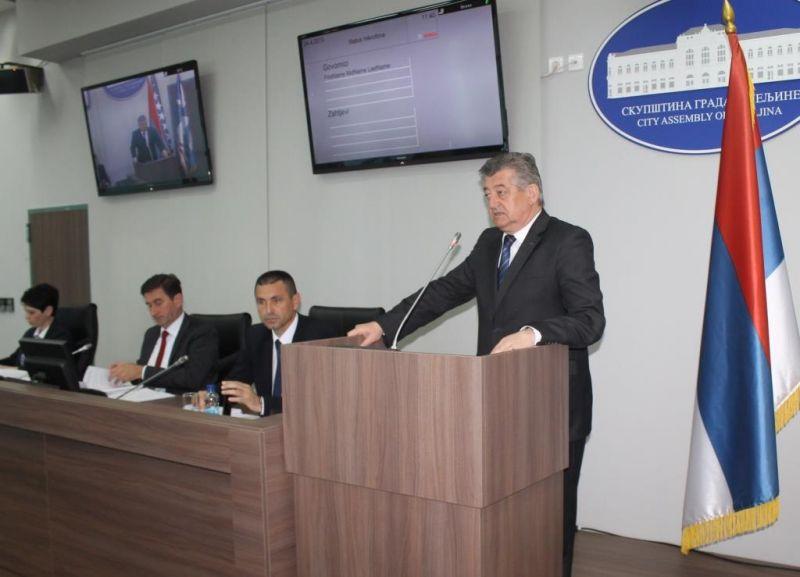About the Assembly
 |
 |
The Assembly of the City of Bijeljina consists of 31 councillors.
The councillors of the City Assembly are elected at direct elections by secret ballot to a four-year term, pursuant to the law.
The City Assembly decides on issues within their competence by majority vote of the total number of councillors, unless otherwise provided by law or the Statute for certain issues.
The manner of decision making of the City Assembly is governed by the Rules of Procedure, pursuant to the law and the Statute.
The City Assembly is a representative body of the citizens of the City and a decision-making and policy-making body of the City.
Within their competence, the City Assembly:
- adopts the Statute of the City;
- adopts decisions and other general acts and provides their authentic interpretation;
- adopts budget, budget annual financial statement, and budget implementation report;
- adopts City development plans and programmes, local economic development plan, investments plan, and capital investments plan;
- adopts spatial and urban plans and programmes of the City;
- adopts construction land development program;
- adopts implementation plans;
- adopts decisions and other general acts related to performance of functions in culture, education, sport, health care, war veterans and disabled persons protection, civil protection in the field of protection and rescuing, social welfare, social care for children and youth, informing, trades, tourism, catering, economy, private entrepreneurship, agriculture, forestry, and environmental protection;
- adopts decisions related to utility fees and other public revenues, when it is authorised by the law;
- adopts decisions and other general acts related to civil protection and fire protection, pursuant to the law, and it takes measures for their functioning;
- adopts decisions on acquiring, managing and disposal of the City property;
- adopts decisions on establishing names of streets, squares, parts of settlements and local communities;
- adopts decisions on organisation of traditional events and marking of important dates and events in the City territory;
- adopts decisions on the use of City symbols;
- adopts decisions on membership of the City in the Association of Local Authorities, in other associations and organisations, establishes and maintains cooperation with other municipalities and cities;
- adopts public areas usage plan;
- adopts decisions on proclamation of honorary citizens and governs the rights and obligations of those decisions;
- adopts decisions on awards and recognitions;
- appoints and dismisses the president of the City Assembly, the vice-president of the City Assembly, the secretary of the City Assembly, and the members of permanent and temporary working bodies of the City Assembly;
- establishes the City Assembly technical service and its working bodies;
- launches initiatives for territorial changes and changes of the name of the City or a settlement;
- decides on the City indebtedness;
- adopts Rules of Procedure and Code of Conduct of the City Assembly councillors;
- reviews the Mayor’s annual work report and provides its opinion about it;
- reviews the Mayor’s report on work within the bodies of the utility companies, which is an integral part of the Mayor’s annual work report;
- decides on disposal of capital of the utility companies owned by the City;
- decides on launching an initiative to recall the Mayor, pursuant to the law;
- establishes public institutions, utility companies and companies performing activities of public interest, and manages them, pursuant to the law;
- announces public loans and self-contributions;
- calls for a referendum;
- provides an opinion about the methodology for establishing remuneration for entrusted tasks;
- adopts decisions on establishing local communities in the City territory;
- appoints and dismisses governing and managing bodies in companies, organisations, and public institutions established by the City, pursuant to the law;
- reviews work reports and operation programmes of companies, organisations, and public institutions established by the City;
- reviews and decides on civic initiatives;
- decides on establishing cooperation with other municipalities and cities; and
- performs other jobs prescribed by the law and this Statute.

